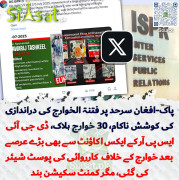biomat
Minister (2k+ posts)
David Cameron's arms-sale tour has mired him in typical liberal interventionist hypocrisy. Better let the Arab world sort itself out
-

- Simon Jenkins
- guardian.co.uk, Tuesday 22 February 2011 20.15 GMT
Downing Street is clearly embarrassed by Egypt, Bahrain and Libya having had the impertinence to rebel just as David Cameron was embarking on an important arms-sales trip to the Gulf, not an area much addicted to democracy. Fifty British arms makers were present at last year's sickening Libyan arms fair, while the resulting weapons are reportedly prominent in gunning down this week's rioters. Cameron reads from the Foreign Office script, claiming that all guns, tanks, armoured vehicles, stun grenades, tear gas and riot-control equipment are "covered by assurances that they would not be used in human rights repression". He must know this is absurd.
What did the FO think Colonel Gaddafi meant to do with sniper rifles and tear-gas grenades go mole hunting? Britain has tried to cover its publicity flank by "revoking 52 export licences" to Bahrain and Libya for weapons used against demonstrators, in effect admitting its guilt. This merely locks the moral stable after the horse has fled, while also being a poor advertisement for British after-sales service. What is the point of selling someone a gun and telling him not to use it?
Every chicanery is used to justify Britain's presence at the current Gulf arms festival, Idex 2011 in Abu Dhabi, a shop window for the half of Britain's 7.2bn a year of weapons exports that goes to the Middle East. Sales to dictators are covered by the usual excuse: "If we do not sell to them someone else will."
This week one of the British firms, NMS, strongly represented in Libya, said it had trained the Libyan regime in "the British policing system", and to give rioters "lots and lots of warnings" before opening fire. Is there a manual saying "frightfully sorry" after the massacre?
Against this illiberal intervention runs its liberal alter ego. Washington and London have been in a frenzy for a month over how to "handle" the wave of Arab demonstrations against entrenched dictatorships. Presidents, prime ministers and foreign secretaries have combed the diplomatic lexicon for terms of abuse, often against those whom they called good friends a few weeks back. Egypt, once a "good ally", is now "unacceptable". Bahrain, our keen host in the Gulf, is suddenly "inexcusable". The family friend of Tony Blair and Peter Mandelson, Colonel Gaddafi, is rewarded with a "horrifying". If I was an Arab dictator and a western politician shook me warmly by the hand, I would count my fingers.
Phrases such as "what we want to see" and "what they must do" are on every statesman's lips, as if the whole region were the west's client state. Europe's foreign policy chief, Baroness Ashton, expressed her "anger and alarm" at Libya and summoned a meeting to "take action". US officials are planning a $4bn intervention to hold down Egypt's price of bread and thus wreck its agriculture as preliminary to a possible flood of "Marshall Aid" cash. It is hard to credit such a combination of economic illiteracy and imperial paternalism.
Even Jim Murphy, Labour's defence spokesman with Iraq and Afghanistan on his conscience, declares that the UK "has a responsibility beyond its borders" and needs to support force "without appearing like the 'more war' party". He wants Britain to go to war against genocide in Africa, which should keep him busy for a while.
The sight of oppressed peoples rising up and challenging their rulers is exhilarating to any democrat. It stirs echoes of the west's struggle for democracy over past centuries. The yearning to reach out and help is strong. The pleas for support from expatriate groups demand consideration. It was to these siren calls that Blair's 1999 Chicago speech was directed, advocating "a new generation of liberal humanitarian wars". We know where that burst of adrenalin led.
The only certainty about the events now sweeping the Arab world is that they are led by Arabs and Arabs alone, and that no one knows where they will end. That they are manifestly self-generated is the most promising feature of the so-called Arab spring. Whatever their success, it will be stronger for being home-grown.
Shortly after taking office, Barrack Obama made a speech on this theme, ironically in Egypt, when he declared unequivocally that "no system of government can or should be imposed upon one nation by any other". He then ordered a surge to bolster America's policy of regime change in Afghanistan. He wisely kept out of the doomed uprising in Tehran last year, but then he put pressure on Mubarak to go in Egypt.
Obama is now being goaded by neoconservatives and liberal interventionists alike to get America more involved in political change across the Arab world, chiefly to aid Israel.
A writer in the current issue of Foreign Affairs applauds the American Tea Party "warts and all" for declaring itself a "capable and reliable partner for the United States' world-order-building tasks". This is irrespective of evidence from across the region that such order-building is red rag to Arab nationalism and Muslim extremism alike.
Western interventionism to destabilise Muslim rulers is currently on a rampant high. Yet it has no way of knowing what regimes, indeed what horrors, may take the place of those now crumbling. Who or what might succeed Mubarak, Gaddafi or the Gulf sheikhs may be worse or may be better. The 1979 uprising against the Shah of Iran was worse, as on most indicators is today's Iraq. At very least, there is an evens chance of one dictatorship merely giving way to another.
The future, like the present, is only our business if we choose to make it so. All diplomacy is situational. We steer clear of criticising China because it is rich and Italy because it is a "European partner". There will always be exceptions to prudence in foreign affairs, as there was in 1939. But today is not 1939. Obama's first instinct was right, to assert that people should be allowed to seek and find their own doubtless lengthy path to self-empowerment.
If we choose to make the Arabs' path harder by arming their oppressors, fine, but we should not proclaim "liberal interventionism". If we proclaim interventionism, we should not sell weapons. Meddling in other people's business is rarely wise. Two-faced meddling is hypocrisy.
 Cameron relief as Obama declares open mind on no-fly zones
Cameron relief as Obama declares open mind on no-fly zones 4 Mar 2011
Previously, the PM had been looking isolated on the world stage when the US defence secretary warned of "loose talk"
- 14 Mar 2011
Libya 'point of decision' nears as Cameron aims to secure UN resolution - 28 Feb 2011
US tightens military grip on Gaddafi - 17 Mar 2011
Intervention, inertia and the consequences for Libya - 6 Sep 2009
Libyan arms dealers to visit London defence show
 Libya finally forces Barack Obama's hand as he goes for broke
Libya finally forces Barack Obama's hand as he goes for broke 17 Mar 2011
Simon Tisdall: After weeks pondering, prevaricating and posturing, the US wants Muammar Gaddafi's head. And it will fight to get it
- guardian.co.uk Guardian News and Media Limited 2011



































